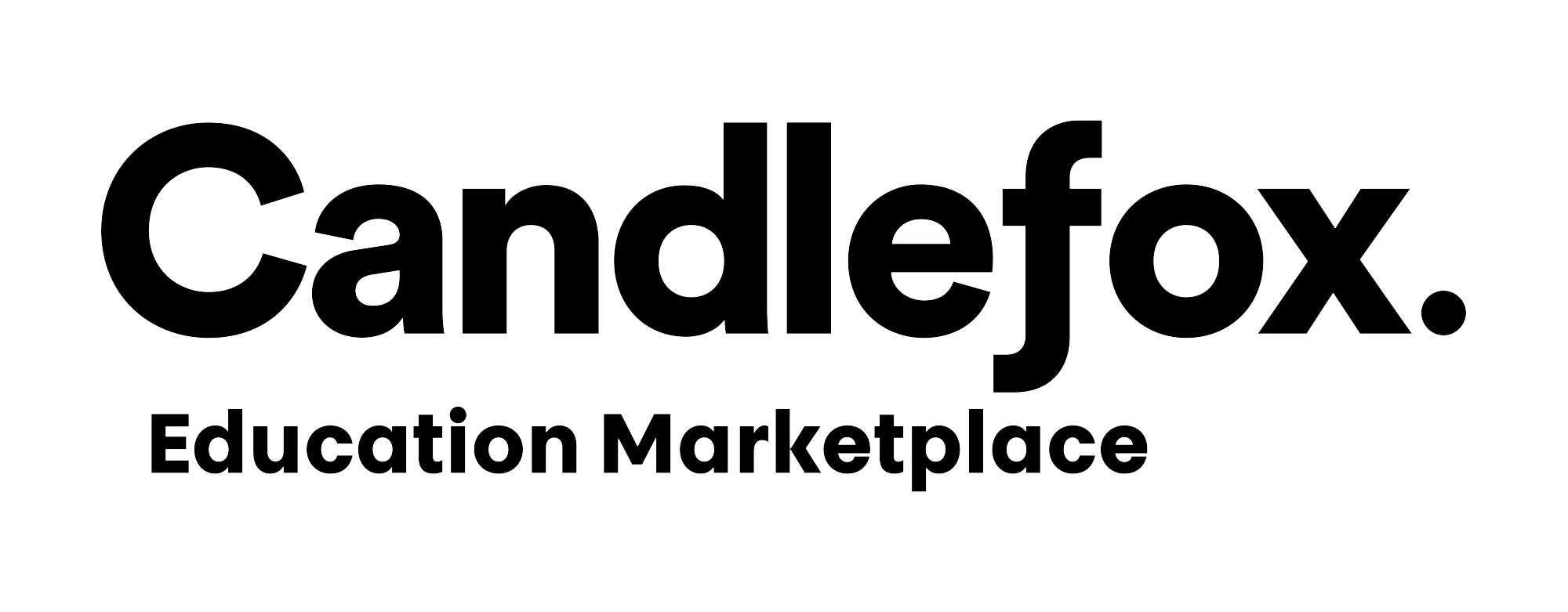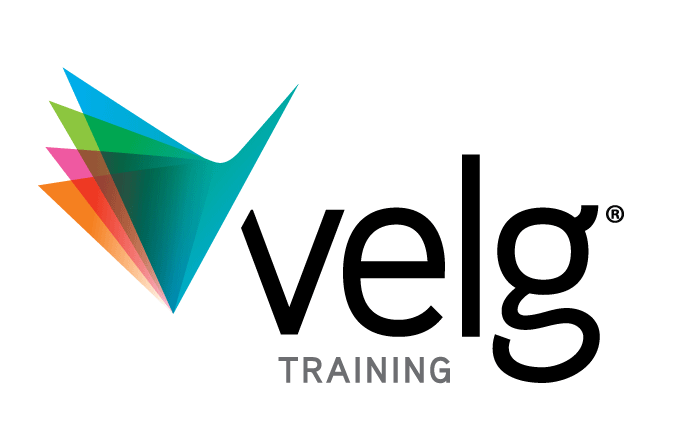Celebrating 30 years of ‘No Frills’ online with our biggest program ever. The conference will feature a comprehensive range of live and pre-recorded content, including exciting keynote speakers, a focus session and over 40 presentations.
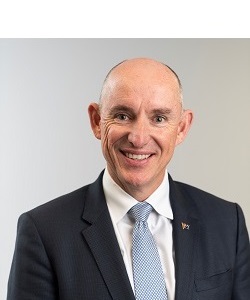
Hon Stuart Robert MP, Minister for Employment, Workforce, Skills, Small and Family Business
Wednesday 7 July
Stuart Robert has been the Federal Member for the northern Gold Coast seat of Fadden since November 2007. He is a passionate advocate for the northern Gold Coast in Canberra, working hard to influence the decisions affecting local residents in the community.
In March 2021, Stuart was appointed Minister for Employment, Workforce, Skills, Small and Family Business. In this role, Stuart is working to continue Australia’s economic recovery through protecting jobs, connecting Australians with work and building a workforce with the right skill set to secure our future prosperity.
He has a particular focus on increasing workforce participation for women, ensuring there is an environment for small and family business to thrive, and building a care workforce to support our veterans, our childcare centres, provide services for people with disability and our aged care sector.
Prior to his election to Parliament Stuart served in the Army for 12 years in Infantry and Intelligence Corps units including, deploying operationally to Bougainville in 1998 as part of the Peace Monitoring Force.
While serving in the Army, Stuart completed a Bachelor of Arts (Hons) and Masters degrees in both Business Administration and Information Technology.
In 2000 Stuart left the Army and, together with a colleague, founded an IT services firm that rapidly expanded to become a nationwide business. This business was twice named one of Australia’s fastest growing businesses in the Business Review Weekly Fast 100 list.
Stuart’s military experience and his success in running a small business is advantageous to his roles as a Cabinet Minister and Federal Member of Parliament.
Stuart understands the challenges and pressures of running a small business and raising a family. He is a long-term resident of the Gold Coast and is married with three school-aged sons, who he loves spending time with while enjoying local Gold Coast attractions.
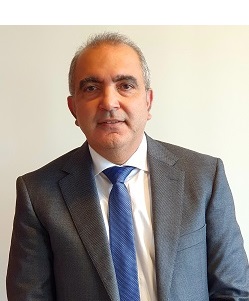
Dr Borhene Chakroun, UNESCO-HQ
Wednesday 7 July
Reading the past, writing the future: skills for recovery and reimagining work and life
Is reading the past sufficient to write the future? The level of uncertainty is increasing. COVID-19 is a stark example, but other uncertainties are also emerging, including disruptions to the world of work, climate change, threats to biodiversity, artificial intelligence and human-machine interaction to name a few. At the same time, there is reason for hope as humanity has overcome other uncertainties in the past.
While it is important to look back on what we have learnt during the past three decades, it is even more important to be aware of humankind’s inherent potential. Around the world, there is a growing attention to education and training. Reforms in technical and vocational education and training (TVET) and skills development systems are underway, with employers, workers and teachers embarking on many promising initiatives. However, TVET needs to be seen as part of a complex set of solutions to the planet’s growing challenges, and it is these interactions which need to define its future.
Writing the future and reimagining work and life requires changing the course of TVET. The COVID challenges provided a test of the resilience and adaptability of communities, states, and the international system, often exceeding the capacity of existing systems and models. An emergent frontier and new learning ecosystems are taking shape before our eyes, but the contours have yet to be fully defined. A forward look requires co-construction with key actors including youth and a serious quest for equity, inclusion and gender equality. The key argument of this presentation is that we have reached the end of a historical cycle and new educational and work patterns have begun to form. These are new times for TVET. First, the skills and competences delivered by TVET must reflect the rapidly changing requirements of technologies, labour markets, societies and skills to cope with uncertainties, questions not yet asked and jobs not yet identified. A second dimension is about demographic transition and the extent to which TVET systems need to become tailored to support learners of all ages and their unique learning and career paths. A third dimension examines the interplay between TVET and on-line learning and its implications regarding delivery, assessment, certification and recognition. Fourth is the recognition that the attractivity of TVET is changing and new opportunities to make TVET a viable path for all are emerging. Finally, the emergence of powerful data mining processes and analytics means that technology can aggregate and integrate data to make far-reaching inferences about individuals’ capacities and profiles, TVET systems performances and labour market demands.
To conclude, the dimensions mentioned above all need extensive attention, policy learning and co-creation. The presentation closes with a reflection on multilateralism, global solidarity and international cooperation as we look to the future of TVET.
About Dr Borhene Chakroun
Dr Borhene Chakroun is an engineer and has a PhD in Education Sciences from Bourgogne University in France. During the 1990s, Borhene worked as a trainer, chief trainer and project manager. He has also worked as a short-term consultant for the EU, World Bank and other international organisations before coming to the European Training Foundation (ETF) in 2001.
At the ETF, Borhene worked as Senior Human Capital Development specialist. He is now Director of Policies and Lifelong Learning Systems Division at UNESCO-HQ. Borhene conducted a range of policy reviews and skills systems diagnosis in different contexts. He has authored and co-authored various articles and books in the field of skills development and lifelong learning.
Much of his most recent work focuses on global trends in reforming education and training systems and global agenda for skills development in the context of the 2030 Sustainable Development Agenda.
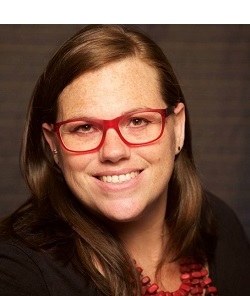
Dr Liz Allen, Australian National University (ANU) Centre for Social Research and Methods
Thursday 8 July
Education: a passport to life
Education and training determine much of our lives. From job opportunities to health outcomes, education and training play a role. Presently, though, education and training opportunities in Australia are not afforded equally to all. These unequal opportunities for education and training then go on to cumulatively influence the lives of subsequent generations, driving inequalities for those not so lucky in the lottery of life. But education and training opportunities should not be about luck.
This presentation details a personal story of the transformative nature of education. From high-school drop-out to PhD, Liz Allen conquered homelessness and teen parenthood to overcome numerous adversities. Through education and training Liz was empowered to not only dream of a different life, but to realise a better future. Liz’s research insights and lived experience offer a blueprint for unlocking education as a passport to life for all Australians.
About Dr Liz Allen
Dr Liz Allen is a demographer and social researcher, teaching research methods and researching population dynamics at the Australian National University (ANU) Centre for Social Research and Methods.
Liz comes from humble beginnings marked by disadvantage including high school drop out, homelessness, poverty, and teen parenthood. Despite this, Liz was named among the inaugural ABC Top 5 Humanities and Social Sciences academics in Australia 2018.
Her book, The Future of Us (2020), is a call to action to build a stronger Australia through fairness and equality.
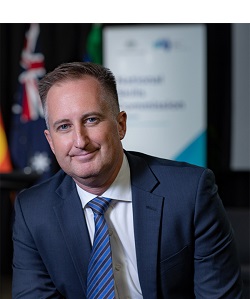
Mr Adam Boyton, National Skills Commission
Friday 9 July
NSC – Skills needs, the labour market and VET pricing & performance
In just over a year since the National Skills Commission was formed, it has been called on to assess the impact of COVID on the jobs market, has published research on emerging occupations and scenarios for recovery, developed a new resource, the Australian Skills Classification, and will soon release its first major assessment of Australia’s current, emerging and future workforce skills needs.
On VET pricing, the Commission has benchmarked the cost of courses across jurisdictions and is developing further analysis on the performance of the VET system. Join Adam Boyton to hear more about what’s ahead.
About Mr Adam Boyton
Mr Adam Boyton was appointed as the inaugural National Skills Commissioner in October 2020 for a five-year term.
As the statutory officer holder, under the National Skills Commissioner Act, Adam provides advice and leadership on Australia’s labour market and current, emerging and future workforce skills needs to Government and the Australian public.
The National Skills Commission’s work focuses on three long term outcomes: to make an enduring and relevant contribution to labour market information and quality, to contribute to a labour market that effectively aligns skills needs with education and training, and to improve the accessibility and relevance of vocational education and training (VET).
With almost 25 years as an economist, Adam blends strong public and private sector experience. Adam was Chief Economist at the Business Council of Australia and Australian Chief Economist at Deutsche Bank prior to this current appointment. He was a member of the NSW Skills Board from 2013 to 2019 and was closely involved in the development of pricing, funding and costing models as well as the continuous review and assessment of VET in NSW.
Adam has also held positions on the board of the NSW Rural Assistance Authority and as a Trustee of the Centennial Park and Moore Park Trust.
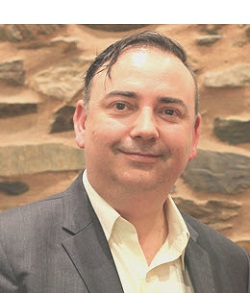
Live Q&A Talk Show Facilitator
Steve Davis, Talked About Marketing
Wednesday 7, Thursday 8 and Friday 9 July
Steve Davis has spent 20 years as a marketing communication consultant and runs the consultancy, Talked About Marketing, based on Oscar Wilde's famous quote, there's only one thing worse than being talked about and that's not being talked about.
As a workshop presenter and speaker, he has delivered keynotes and conference sessions on social media marketing for tourism, food and wine, law, and building industry sectors.
His first career was radio and journalism and those 18 years included a two-year stint as a current affairs presenter (in English) for Hungary's national broadcaster. In 2013 he began a podcast, The Adelaide Show, which was a national finalist at the Australian Podcast Awards.
He also hosts the NCVER podcast, Vocational Voices, the Clinpath Pathology podcast, This Pathological Life, and a national comedy podcast, School Of Hard Knock Knocks. In his spare time he is a critic for ABC Smart Arts and travels the country with his comedy character, Professor Longsword from The MBA School Of MBA Credentials.
* Speakers and presentations are subject to change
| DAY 3 | ||||||
|---|---|---|---|---|---|---|
| CONCURRENT SESSIONS | ||||||
| THEMES | INTERNATIONAL VET | QUALIFICATIONS | TEACHING & LEARNING | |||
| 10:30 | Productivity growth of modern apprentices in Scotland Malcolm Greig, Alma Sobrevilla & Zoe Mackay, Skills Development Scotland | Estimating the stock of qualifications in Australia Michelle Hall & John Stanwick, NCVER | Apprenticeship as a mode of occupational learning Stephen Billett, Griffith University | |||
| 11:00 | COVID-19's impact on teaching and learning on Moldovan VET schools Oleg Stiopca, State Agrarian University of Moldova & Robert Cobb, North Carolina Agricultural and Technical State University | Micro-credentials in VET: the importance of ‘subject bundle’ enrolments John Stanwick, NCVER | What factors enable trades people academic achievement in higher education? Mark Jordan, Holmesglen Institute | |||
| 11:30 | 15 MINUTE BREAK | |||||
| FEATURED SPEAKERS | ||||||
| 11:45 | Thirty years on: re-imagining competence in a post-COVID world Martha Kinsman, Australian National University | |||||
| 12:15 | VET and worklife learning pathways Stephen Billett, Griffith University | |||||
12:45
| Live Q&A Talk Show featuring Martha Kinsman and Stephen Billett Facilitated by broadcast journalist Steve Davis VET TRIVIA QUIZ WINNER ANNOUNCED | Proudly sponsored by | ||||
| 13:15 | 30 MINUTE LUNCH BREAK | |||||
| CONCURRENT SESSIONS | ||||||
| THEMES | WORKFORCE DEVELOPMENT | PRACTICE | ||||
| 13:45 | Workforce forecasting in the New Zealand construction and infrastructure industry Mark Williams, BCITO | Knowing Australian VET: evidence-based practice or practice-based evidence? Don Zoellner, Charles Darwin University | ||||
| 14:15 | Leaving no worker behind: how Australia's VET system can enable our country to be a world leader in digital transformation Paul Walsh, Australian Industry Standards | Turning failure into success: transforming VET Nursing students into winners with excellence in targeted clinical remediation Lindsay Bava, Holmesglen Institute | ||||
| KEYNOTE SESSION | ||||||
| 14:45 | KEYNOTE SPEAKER: | |||||
| CLOSING REMARKS | ||||||
| 15:30 | DAY 3 CONCLUDES | |||||
| PRINT PAGE | SAVE WEB PAGE AS PDF |
| Using the browser of your choice select PRINT for a print friendly version. |
The following browsers provide this option:
Microsoft Edge browser: Select PRINT and change Printer option to ‘Microsoft Print to PDF’ Firefox browser run on Windows 10: Go to FILE menu and select PRINT PREVIEW. In this view click on PRINT... In the dialog box SELECT PRINTER option 'Microsoft Print to PDF'. Click on PRINT button and name the file you are saving. |
Conference program
Keynotes

Hon Stuart Robert MP, Minister for Employment, Workforce, Skills, Small and Family Business
Wednesday 7 July
Stuart Robert has been the Federal Member for the northern Gold Coast seat of Fadden since November 2007. He is a passionate advocate for the northern Gold Coast in Canberra, working hard to influence the decisions affecting local residents in the community.
In March 2021, Stuart was appointed Minister for Employment, Workforce, Skills, Small and Family Business. In this role, Stuart is working to continue Australia’s economic recovery through protecting jobs, connecting Australians with work and building a workforce with the right skill set to secure our future prosperity.
He has a particular focus on increasing workforce participation for women, ensuring there is an environment for small and family business to thrive, and building a care workforce to support our veterans, our childcare centres, provide services for people with disability and our aged care sector.
Prior to his election to Parliament Stuart served in the Army for 12 years in Infantry and Intelligence Corps units including, deploying operationally to Bougainville in 1998 as part of the Peace Monitoring Force.
While serving in the Army, Stuart completed a Bachelor of Arts (Hons) and Masters degrees in both Business Administration and Information Technology.
In 2000 Stuart left the Army and, together with a colleague, founded an IT services firm that rapidly expanded to become a nationwide business. This business was twice named one of Australia’s fastest growing businesses in the Business Review Weekly Fast 100 list.
Stuart’s military experience and his success in running a small business is advantageous to his roles as a Cabinet Minister and Federal Member of Parliament.
Stuart understands the challenges and pressures of running a small business and raising a family. He is a long-term resident of the Gold Coast and is married with three school-aged sons, who he loves spending time with while enjoying local Gold Coast attractions.

Dr Borhene Chakroun, UNESCO-HQ
Wednesday 7 July
Reading the past, writing the future: skills for recovery and reimagining work and life
Is reading the past sufficient to write the future? The level of uncertainty is increasing. COVID-19 is a stark example, but other uncertainties are also emerging, including disruptions to the world of work, climate change, threats to biodiversity, artificial intelligence and human-machine interaction to name a few. At the same time, there is reason for hope as humanity has overcome other uncertainties in the past.
While it is important to look back on what we have learnt during the past three decades, it is even more important to be aware of humankind’s inherent potential. Around the world, there is a growing attention to education and training. Reforms in technical and vocational education and training (TVET) and skills development systems are underway, with employers, workers and teachers embarking on many promising initiatives. However, TVET needs to be seen as part of a complex set of solutions to the planet’s growing challenges, and it is these interactions which need to define its future.
Writing the future and reimagining work and life requires changing the course of TVET. The COVID challenges provided a test of the resilience and adaptability of communities, states, and the international system, often exceeding the capacity of existing systems and models. An emergent frontier and new learning ecosystems are taking shape before our eyes, but the contours have yet to be fully defined. A forward look requires co-construction with key actors including youth and a serious quest for equity, inclusion and gender equality. The key argument of this presentation is that we have reached the end of a historical cycle and new educational and work patterns have begun to form. These are new times for TVET. First, the skills and competences delivered by TVET must reflect the rapidly changing requirements of technologies, labour markets, societies and skills to cope with uncertainties, questions not yet asked and jobs not yet identified. A second dimension is about demographic transition and the extent to which TVET systems need to become tailored to support learners of all ages and their unique learning and career paths. A third dimension examines the interplay between TVET and on-line learning and its implications regarding delivery, assessment, certification and recognition. Fourth is the recognition that the attractivity of TVET is changing and new opportunities to make TVET a viable path for all are emerging. Finally, the emergence of powerful data mining processes and analytics means that technology can aggregate and integrate data to make far-reaching inferences about individuals’ capacities and profiles, TVET systems performances and labour market demands.
To conclude, the dimensions mentioned above all need extensive attention, policy learning and co-creation. The presentation closes with a reflection on multilateralism, global solidarity and international cooperation as we look to the future of TVET.
About Dr Borhene Chakroun
Dr Borhene Chakroun is an engineer and has a PhD in Education Sciences from Bourgogne University in France. During the 1990s, Borhene worked as a trainer, chief trainer and project manager. He has also worked as a short-term consultant for the EU, World Bank and other international organisations before coming to the European Training Foundation (ETF) in 2001.
At the ETF, Borhene worked as Senior Human Capital Development specialist. He is now Director of Policies and Lifelong Learning Systems Division at UNESCO-HQ. Borhene conducted a range of policy reviews and skills systems diagnosis in different contexts. He has authored and co-authored various articles and books in the field of skills development and lifelong learning.
Much of his most recent work focuses on global trends in reforming education and training systems and global agenda for skills development in the context of the 2030 Sustainable Development Agenda.

Dr Liz Allen, Australian National University (ANU) Centre for Social Research and Methods
Thursday 8 July
Education: a passport to life
Education and training determine much of our lives. From job opportunities to health outcomes, education and training play a role. Presently, though, education and training opportunities in Australia are not afforded equally to all. These unequal opportunities for education and training then go on to cumulatively influence the lives of subsequent generations, driving inequalities for those not so lucky in the lottery of life. But education and training opportunities should not be about luck.
This presentation details a personal story of the transformative nature of education. From high-school drop-out to PhD, Liz Allen conquered homelessness and teen parenthood to overcome numerous adversities. Through education and training Liz was empowered to not only dream of a different life, but to realise a better future. Liz’s research insights and lived experience offer a blueprint for unlocking education as a passport to life for all Australians.
About Dr Liz Allen
Dr Liz Allen is a demographer and social researcher, teaching research methods and researching population dynamics at the Australian National University (ANU) Centre for Social Research and Methods.
Liz comes from humble beginnings marked by disadvantage including high school drop out, homelessness, poverty, and teen parenthood. Despite this, Liz was named among the inaugural ABC Top 5 Humanities and Social Sciences academics in Australia 2018.
Her book, The Future of Us (2020), is a call to action to build a stronger Australia through fairness and equality.

Mr Adam Boyton, National Skills Commission
Friday 9 July
NSC – Skills needs, the labour market and VET pricing & performance
In just over a year since the National Skills Commission was formed, it has been called on to assess the impact of COVID on the jobs market, has published research on emerging occupations and scenarios for recovery, developed a new resource, the Australian Skills Classification, and will soon release its first major assessment of Australia’s current, emerging and future workforce skills needs.
On VET pricing, the Commission has benchmarked the cost of courses across jurisdictions and is developing further analysis on the performance of the VET system. Join Adam Boyton to hear more about what’s ahead.
About Mr Adam Boyton
Mr Adam Boyton was appointed as the inaugural National Skills Commissioner in October 2020 for a five-year term.
As the statutory officer holder, under the National Skills Commissioner Act, Adam provides advice and leadership on Australia’s labour market and current, emerging and future workforce skills needs to Government and the Australian public.
The National Skills Commission’s work focuses on three long term outcomes: to make an enduring and relevant contribution to labour market information and quality, to contribute to a labour market that effectively aligns skills needs with education and training, and to improve the accessibility and relevance of vocational education and training (VET).
With almost 25 years as an economist, Adam blends strong public and private sector experience. Adam was Chief Economist at the Business Council of Australia and Australian Chief Economist at Deutsche Bank prior to this current appointment. He was a member of the NSW Skills Board from 2013 to 2019 and was closely involved in the development of pricing, funding and costing models as well as the continuous review and assessment of VET in NSW.
Adam has also held positions on the board of the NSW Rural Assistance Authority and as a Trustee of the Centennial Park and Moore Park Trust.

Live Q&A Talk Show Facilitator
Steve Davis, Talked About Marketing
Wednesday 7, Thursday 8 and Friday 9 July
Steve Davis has spent 20 years as a marketing communication consultant and runs the consultancy, Talked About Marketing, based on Oscar Wilde's famous quote, there's only one thing worse than being talked about and that's not being talked about.
As a workshop presenter and speaker, he has delivered keynotes and conference sessions on social media marketing for tourism, food and wine, law, and building industry sectors.
His first career was radio and journalism and those 18 years included a two-year stint as a current affairs presenter (in English) for Hungary's national broadcaster. In 2013 he began a podcast, The Adelaide Show, which was a national finalist at the Australian Podcast Awards.
He also hosts the NCVER podcast, Vocational Voices, the Clinpath Pathology podcast, This Pathological Life, and a national comedy podcast, School Of Hard Knock Knocks. In his spare time he is a critic for ABC Smart Arts and travels the country with his comedy character, Professor Longsword from The MBA School Of MBA Credentials.
Wednesday 7 July
* Speakers and presentations are subject to change
Thursday 8 July
Friday 9 July
| DAY 3 | ||||||
|---|---|---|---|---|---|---|
| CONCURRENT SESSIONS | ||||||
| THEMES | INTERNATIONAL VET | QUALIFICATIONS | TEACHING & LEARNING | |||
| 10:30 | Productivity growth of modern apprentices in Scotland Malcolm Greig, Alma Sobrevilla & Zoe Mackay, Skills Development Scotland | Estimating the stock of qualifications in Australia Michelle Hall & John Stanwick, NCVER | Apprenticeship as a mode of occupational learning Stephen Billett, Griffith University | |||
| 11:00 | COVID-19's impact on teaching and learning on Moldovan VET schools Oleg Stiopca, State Agrarian University of Moldova & Robert Cobb, North Carolina Agricultural and Technical State University | Micro-credentials in VET: the importance of ‘subject bundle’ enrolments John Stanwick, NCVER | What factors enable trades people academic achievement in higher education? Mark Jordan, Holmesglen Institute | |||
| 11:30 | 15 MINUTE BREAK | |||||
| FEATURED SPEAKERS | ||||||
| 11:45 | Thirty years on: re-imagining competence in a post-COVID world Martha Kinsman, Australian National University | |||||
| 12:15 | VET and worklife learning pathways Stephen Billett, Griffith University | |||||
12:45
| Live Q&A Talk Show featuring Martha Kinsman and Stephen Billett Facilitated by broadcast journalist Steve Davis VET TRIVIA QUIZ WINNER ANNOUNCED | Proudly sponsored by | ||||
| 13:15 | 30 MINUTE LUNCH BREAK | |||||
| CONCURRENT SESSIONS | ||||||
| THEMES | WORKFORCE DEVELOPMENT | PRACTICE | ||||
| 13:45 | Workforce forecasting in the New Zealand construction and infrastructure industry Mark Williams, BCITO | Knowing Australian VET: evidence-based practice or practice-based evidence? Don Zoellner, Charles Darwin University | ||||
| 14:15 | Leaving no worker behind: how Australia's VET system can enable our country to be a world leader in digital transformation Paul Walsh, Australian Industry Standards | Turning failure into success: transforming VET Nursing students into winners with excellence in targeted clinical remediation Lindsay Bava, Holmesglen Institute | ||||
| KEYNOTE SESSION | ||||||
| 14:45 | KEYNOTE SPEAKER: | |||||
| CLOSING REMARKS | ||||||
| 15:30 | DAY 3 CONCLUDES | |||||


